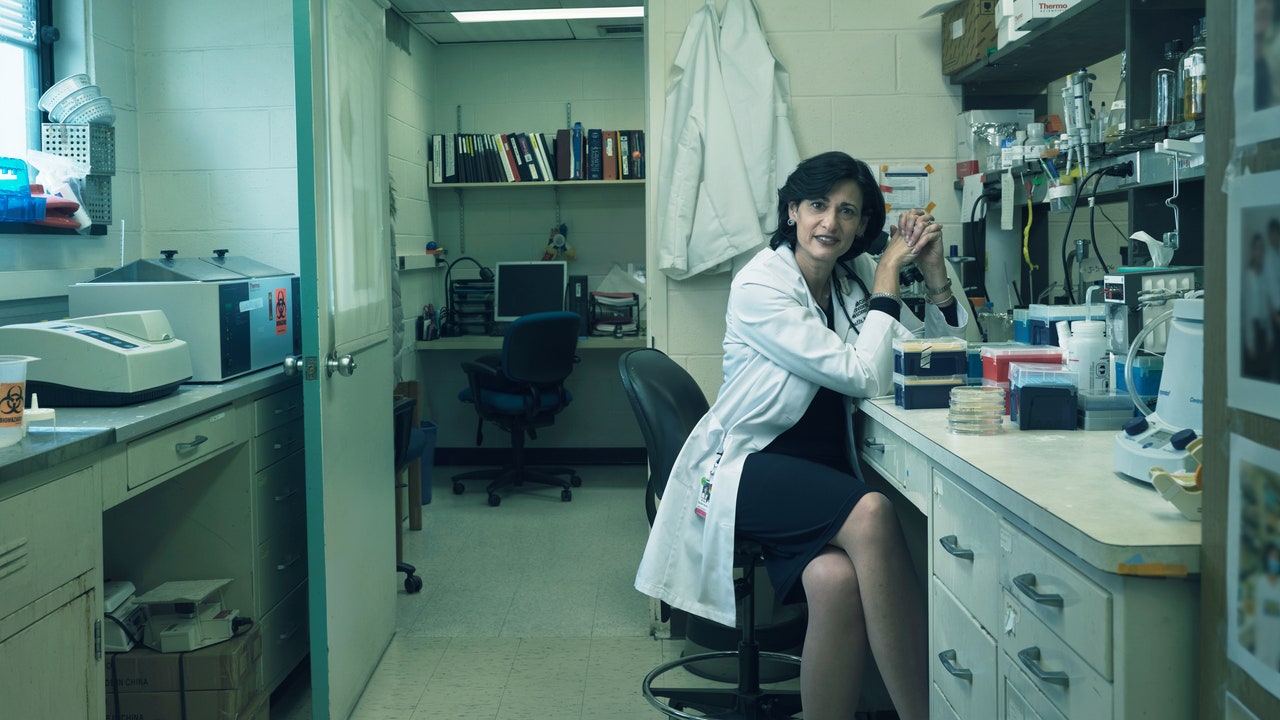SHE CRIES as she gets the vaccine. “It’s amazing, it’s amazing,” Rochelle Walensky, M.D., murmurs as a nurse at Massachusetts General Hospital pierces her deltoid with a needle. “Usually it takes 10 to 15 years. The fact that we have it in one.…” Walensky shakes her head in wonder.
“Yay for science,” the nurse says.
“Yay for science,” Walensky agrees.
After vaccination, patients are monitored for an allergic reaction for 15 minutes, so Walensky—who had been chief of infectious diseases at Mass General until a few weeks ago—takes a seat in a makeshift clinic set up in the now-shuttered museum of medicine at the hospital. “It has been so hard,” she says, dabbing her eyes over her mask. “So much of what we do as doctors has to do with touch. With COVID all you can see are the eyes, and these patients have been so alone, without their families.” It is not the first time she’s become emotional over the toll of this pandemic. When she spoke recently at the announcement of her new job as the director of the Centers for Disease Control and Prevention, she also teared up. “My kids were like, ‘You quivered.’” She laughs at herself. “I did! I can’t help it. I want to be strong, but when you look at all the people affected and the collateral damage, it’s heavy.”
There’s no doubt that Walensky, 51, has the scientific and intellectual chops for her new job. Besides her now-former position at Mass General, the teaching hospital of Harvard, she is a prolific author of papers on the epidemiology of HIV and, at 43, was among the youngest women ever promoted to full professor at Harvard Medical School. As Julie Gerberding, M.D.—who led the CDC from 2002 to 2009—says, “Her credentials and reputation are impeccable. It’s clear that the Biden administration played an ace in this decision.” It’s also clear Walensky will bring much-needed compassion to a nation reeling from the trauma of the last year. “She’s an interesting choice,” says Ingrid Bassett, M.D., an associate professor of medicine at Harvard Medical School, who counts Walensky as one of her mentors. “It shows that they understand the messenger is just as important as the message. She’s warm, she’s kind, you feel she wants to make the world a better place. People are ready to feel that sense of trust in the messenger.”
The CDC was founded in 1946 to combat malaria in the South, which is why the main campus is located in Atlanta. In the years since, it has evolved into a revered institution entrusted with protecting the country’s health. “I know it doesn’t roll off the public’s tongue,” Walensky says, “but I rely on it for everything I do. If you type c in my Google search bar, the first thing that comes up is the CDC website.” For all those reasons, its missteps in this pandemic year have been acutely painful for the scientific community. First the CDC stumbled by producing a flawed COVID-19 test early on. More recently, whistleblowers have revealed the extent to which politics have interfered with the agency’s delivery of medical advice. Health memos from the CDC were being edited by the likes of Kellyanne Conway and Ivanka Trump. Lifesaving practical advice was simply ignored—when the agency sought to issue a nationwide requirement that masks be worn on all public transportation last September, the White House blocked it without discussion.
